Authorized by the Prime Minister to present the Report on explanation, acceptance and revision of the draft Law on Cadres and Civil Servants (amended), Minister of Home Affairs Pham Thi Thanh Tra said that the regulations on principles of cadre and civil servant management basically inherit and promote the current law, and at the same time amend them to be consistent with the 2013 Constitution and in line with the orientation of managing the team according to job positions and measures to evaluate the effectiveness of public service performance.
National Assembly delegates press the button to pass the revised Law on Cadres and Civil Servants
PHOTO: PHAM THANG
There are suggestions to regulate the principles of managing cadres and civil servants according to job positions (not combined with ranks), and to regulate more specifically the principles of combining ranks and job positions to resolve practical problems arising in the case of assigning senior specialists and senior specialists to job positions with lower ranks.
According to the Government , one of the goals of this law amendment is to transform the method of managing cadres and civil servants according to job positions, which is the basis for recruitment, arrangement, evaluation, planning, appointment...
The draft law still maintains the civil service ranks to distinguish the hierarchy in the job position system. However, the draft law has removed the regulations on examination and promotion to ensure consistency with the principle that each job position is assigned a rank corresponding to that job position.
The Government will provide detailed regulations and specific instructions during the implementation process, on the basis of ensuring the legitimate rights and interests of cadres and civil servants.
Regarding attracting talented people to the public sector, the draft law also clearly stipulates policies for two groups of subjects: The group of high-quality human resources (experts, scientists, jurists, good lawyers, typical businessmen, excellent graduates...). The group of subjects are talented people in public service activities.
At the same time, absorbing the opinions of delegates, the draft law stipulates 3 special forms of attracting high-quality human resources: accepting to work as civil servants; signing contracts to perform the tasks of leading and managing civil servants; signing contracts to perform a number of tasks of professional and technical job positions.
In particular, to have superior incentive mechanisms and policies, ministries, branches and localities are allowed to mobilize legal resources outside the budget to have conditions to supplement better regimes and policies.
Regarding the evaluation of cadres and civil servants, the new point of the draft law is to classify quality according to 4 levels: completed, well completed, excellently completed and not completed the task. This result will be used to evaluate cadre work such as planning, training, appointment; and rewards.
Those who fail to complete their tasks or do not meet the requirements of the tasks will be considered for placement in jobs with lower requirements or dismissal.
Complete job position by July 2027 at the latest
Besides, there are opinions that the draft law does not clearly define the mechanism for handling corruption and protecting innovative and creative civil servants and lacks risk management measures.
There is also a proposal to establish a risk insurance fund for innovative officials and civil servants.
Receiving and explaining opinions, the Government said that the draft has added provisions to consider excluding, exempting or reducing responsibility if there are errors or damages when implementing innovation according to Party regulations and the law. Or implementing in the right order, not for personal gain but still causing damage for objective reasons.
Regarding the handling of cadres, there is a proposal to add a regulation that if convicted by the court, one will be automatically forced to quit the job (for civil servants) or dismissed (for cadres), including cases of suspended sentence, to ensure consistency with the Party's expulsion regulations.
According to the Government, in case a Party member is convicted by a court with an effective decision or verdict, he or she will be automatically expelled (the highest form of disciplinary action by the Party). For the State, the highest form of disciplinary action is dismissal (for officials) or termination of employment (for civil servants).
Previously, the Ministry of Home Affairs reported and the National Assembly Standing Committee agreed to add a transitional provision that "no later than July 1, 2027, ministries, branches and localities must complete the placement into job positions and ranks corresponding to job positions for civil servants recruited before the effective date of the law".
Thanhnien.vn
Source: https://thanhnien.vn/bo-thi-xet-hang-nang-ngach-cong-chuc-185250623233833847.htm


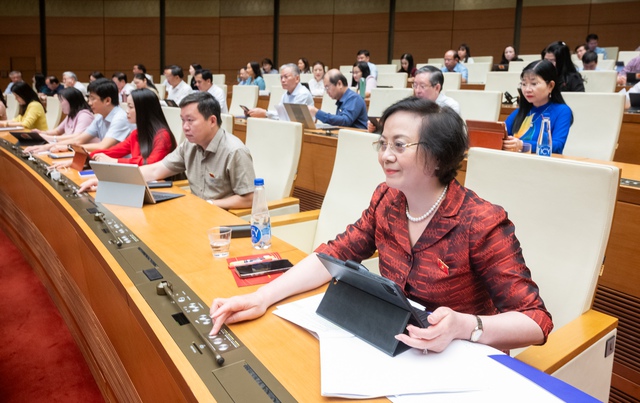
![[Photo] The 9th Party Congress of the National Political Publishing House Truth](https://vphoto.vietnam.vn/thumb/1200x675/vietnam/resource/IMAGE/2025/6/24/ade0561f18954dd1a6a491bdadfa84f1)



![[Photo] General Secretary To Lam meets with the Group of Young National Assembly Deputies](https://vphoto.vietnam.vn/thumb/1200x675/vietnam/resource/IMAGE/2025/6/24/618b5c3b8c92431686f2217f61dbf4f6)
![[Photo] Close-up of modernized Thu Thiem, connecting new life with District 1](https://vphoto.vietnam.vn/thumb/1200x675/vietnam/resource/IMAGE/2025/6/24/d360fb27c6924b0087bf4f288c24b2f2)

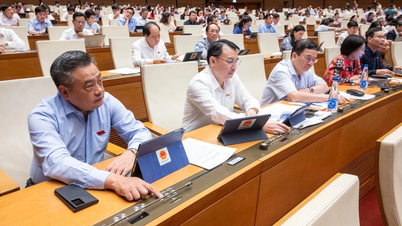

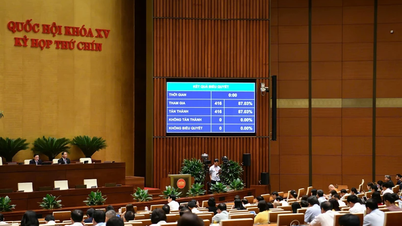

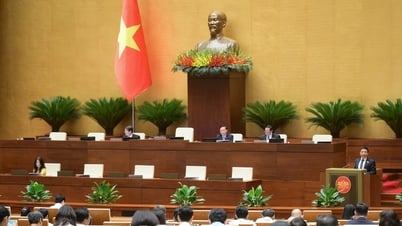

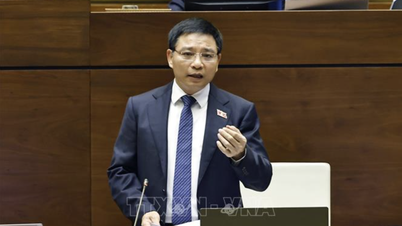





































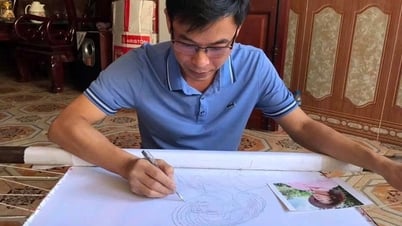




















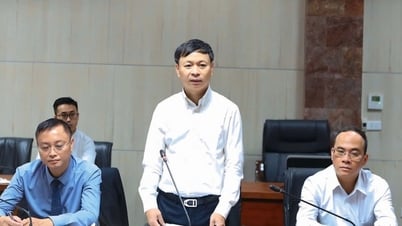





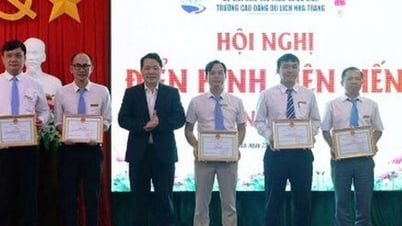




























Comment (0)